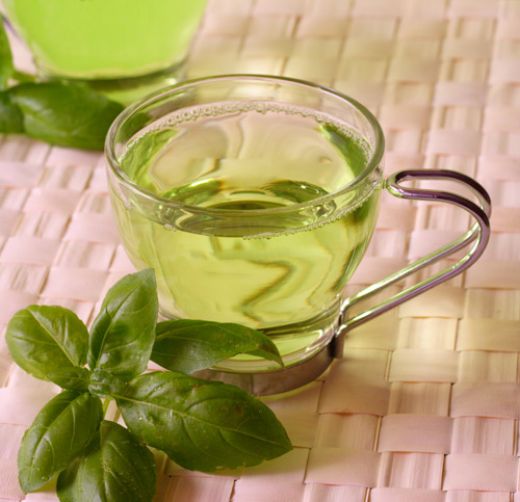There are a number of questions people ask their nutritionists about green tea: is it good or bad for me? What is the optimal daily consumption of green tea? Will it help me lose weight? Does it have caffeine? Here we will try to answer all these questions and more.
About Green Tea
Green tea has a long history of culinary and medicinal use. It has been used for centuries as a stimulant, a diuretic and to help reduce the risk of cardiovascular diseases. There are three known varieties of tea – green tea, black tea and oolong tea. Unlike black and oolong, green tea does not undergo a fermentation process upon harvesting. Its leaves can be used both fresh and dried and the health benefits remain the same in either case. To avoid fermentation process in the leaves of green tea, simply steam or pan-fry them for a few minutes. There are a number of varieties of green tea, including Matcha, Hyson, Gunpowder and Sencha. The Chinese have been using green tea to treat everything, from headaches to depression and heart attacks since ancient times.
Nutritional facts
Scientific research in both Asia and the West has proven that this medicinal plant is rich in powerful antioxidants, polyphenols, which help ward off a number of diseases. Green tea also contains a specific type of polyphenols called “catechins”, that add a little bitter taste to it. To cut the bitterness, try adding few drops of lemon juice to one cup of green tea. This medicinal plant is also rich in vitamins and minerals. The main vitamins you can find in green tea are Vitamins B, C and E. It is also a good source of fluoride, a mineral that strengthens your bones and teeth.
Green tea and diseases
Numerous studies have concluded that green tea plays a key role in reducing the risk of coronary heart disease. A study published in the Journal of the American Medical Association in 2006 indicated that people who have been drinking green tea for the past 11 years had little chances of suffering from a stroke. There is also a research indicating that green tea contains a chemical that inhibits the growth of cancer cells and also kills them without harming healthy tissues.
Another study has concluded that drinking green tea regularly lowers bad cholesterol (LDL) and increases good cholesterol (HDL). Scientific studies have also shown that green tea helps improve cognitive function among seniors.
Weight Loss
According to research results, green tea contains what are called alkaloids, which act as stimulants and help speed up your metabolism rate. An increased metabolism means calories burn quickly in your body, helping you lose weight faster. A research has recently concluded that green tea and green tea supplements help lose about 1 to 5 pounds of weight (depending upon the type and consumption pattern of green tea).
Conclusion:
Based on the results of scientific studies carried out over time, one can safely conclude that green tea can be part of a healthy diet. For optimal results drink a cup or two of green tea a day. However, it has been observed that it interacts with medicines prescribed for kidney problems and psychological disorders. So if you are battling any of these two problems, it is recommended to consult your doctor before drinking green tea or taking green tea supplements.





No Comment